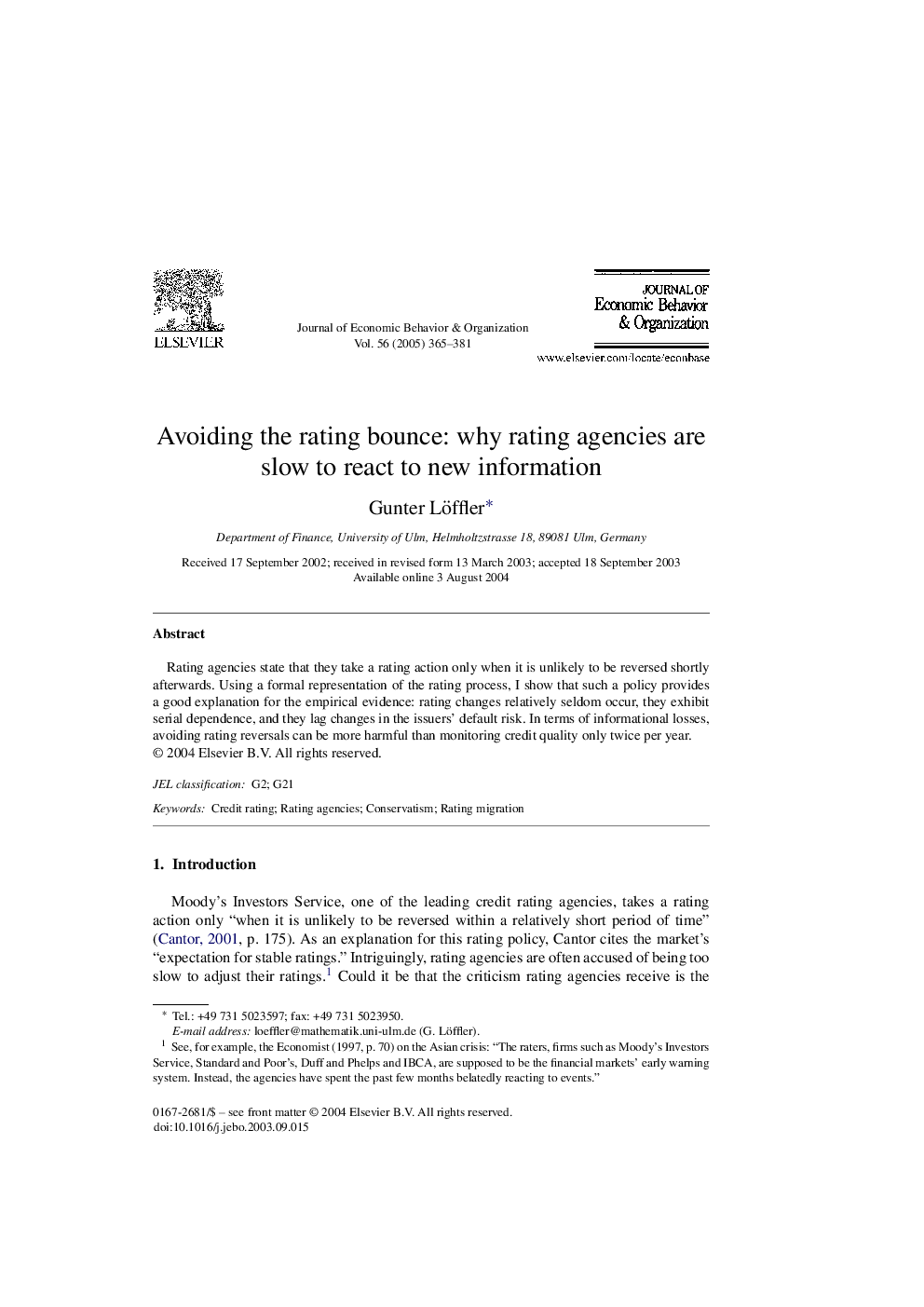| Article ID | Journal | Published Year | Pages | File Type |
|---|---|---|---|---|
| 10437874 | Journal of Economic Behavior & Organization | 2005 | 17 Pages |
Abstract
Rating agencies state that they take a rating action only when it is unlikely to be reversed shortly afterwards. Using a formal representation of the rating process, I show that such a policy provides a good explanation for the empirical evidence: rating changes relatively seldom occur, they exhibit serial dependence, and they lag changes in the issuers' default risk. In terms of informational losses, avoiding rating reversals can be more harmful than monitoring credit quality only twice per year.
Related Topics
Social Sciences and Humanities
Economics, Econometrics and Finance
Economics and Econometrics
Authors
Gunter Löffler,
